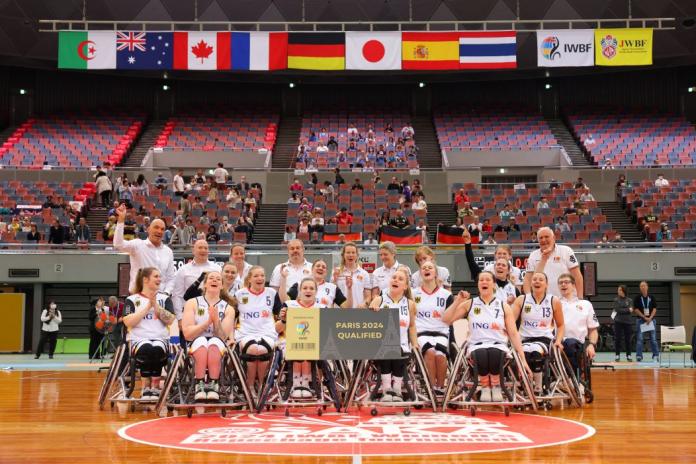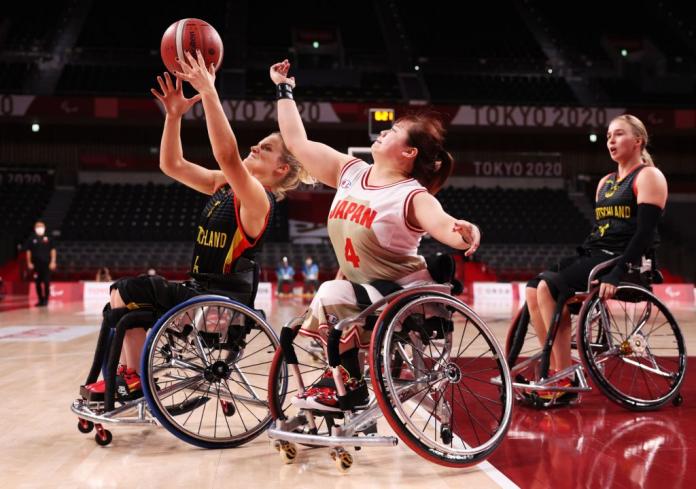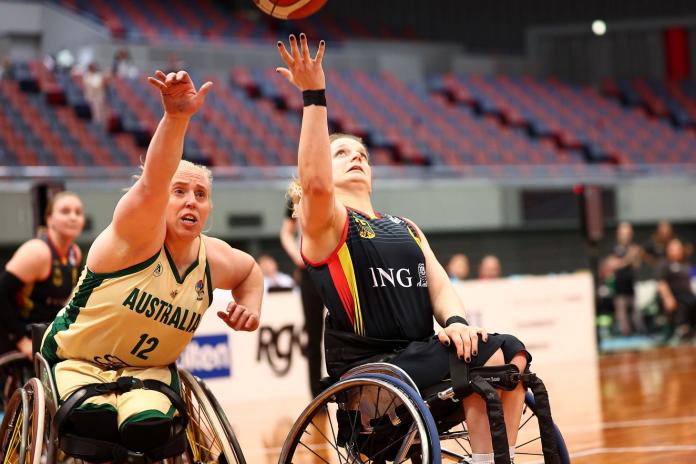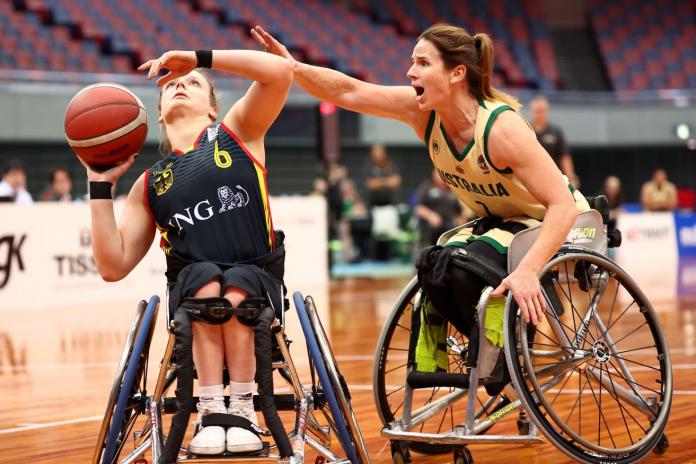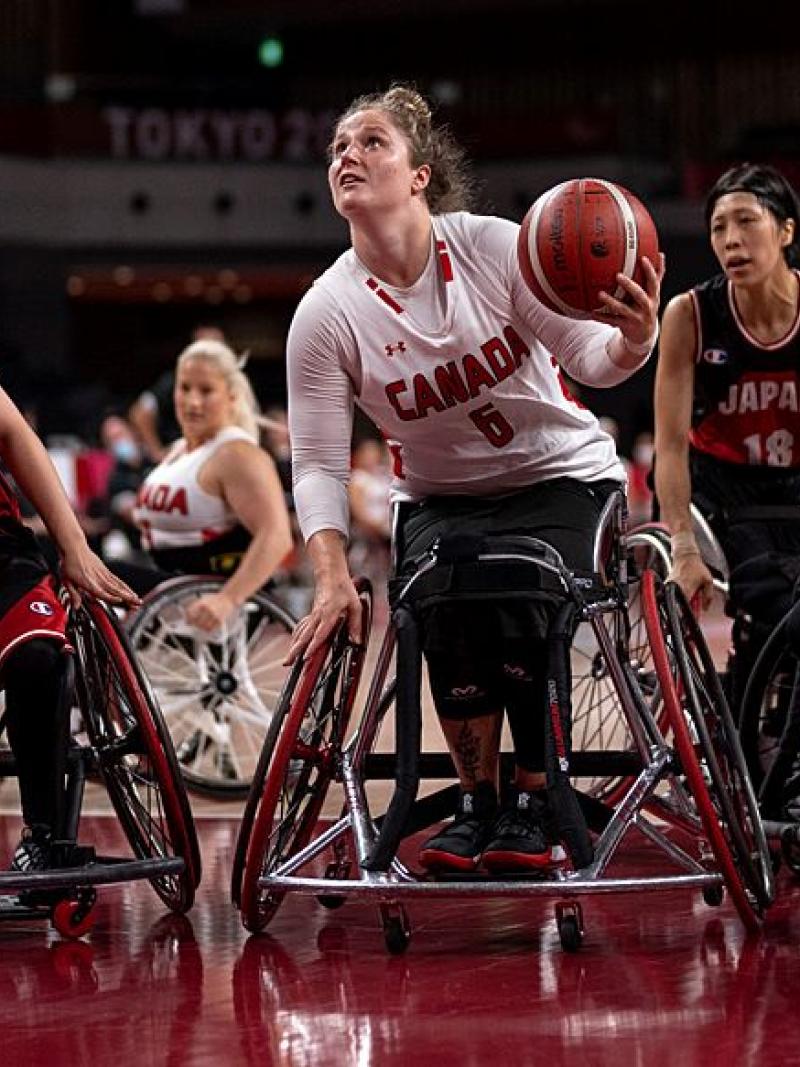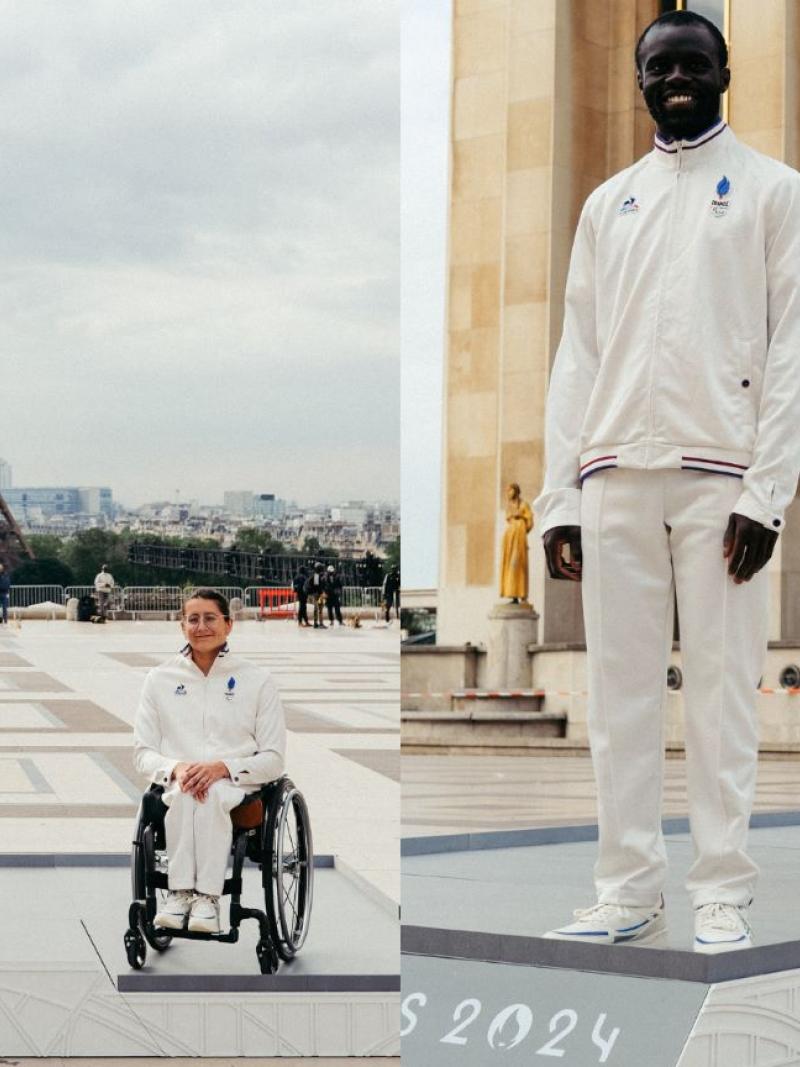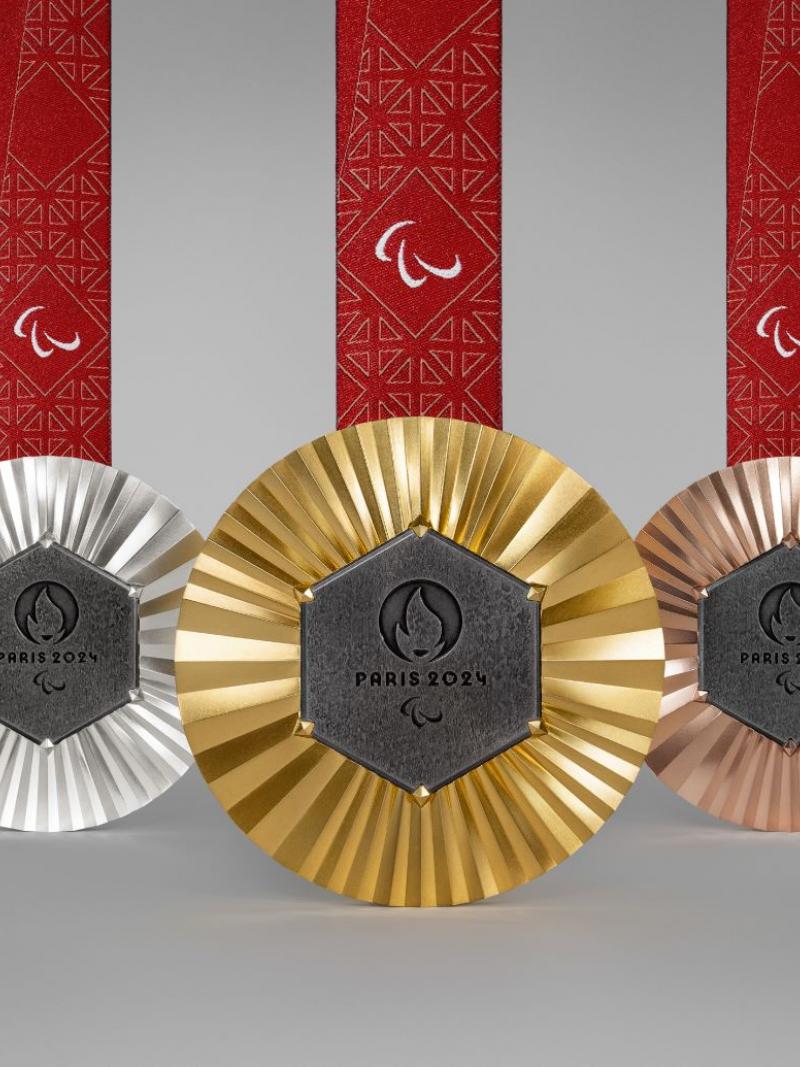Paris 2024: Germany’s Weiss trains hard to turn trend of fourth-places into gold
Catharina Weiss says her journey to the Paralympic Games started when she watched Germany win wheelchair basketball gold at the London 2012 Paralympics 02 Jul 2024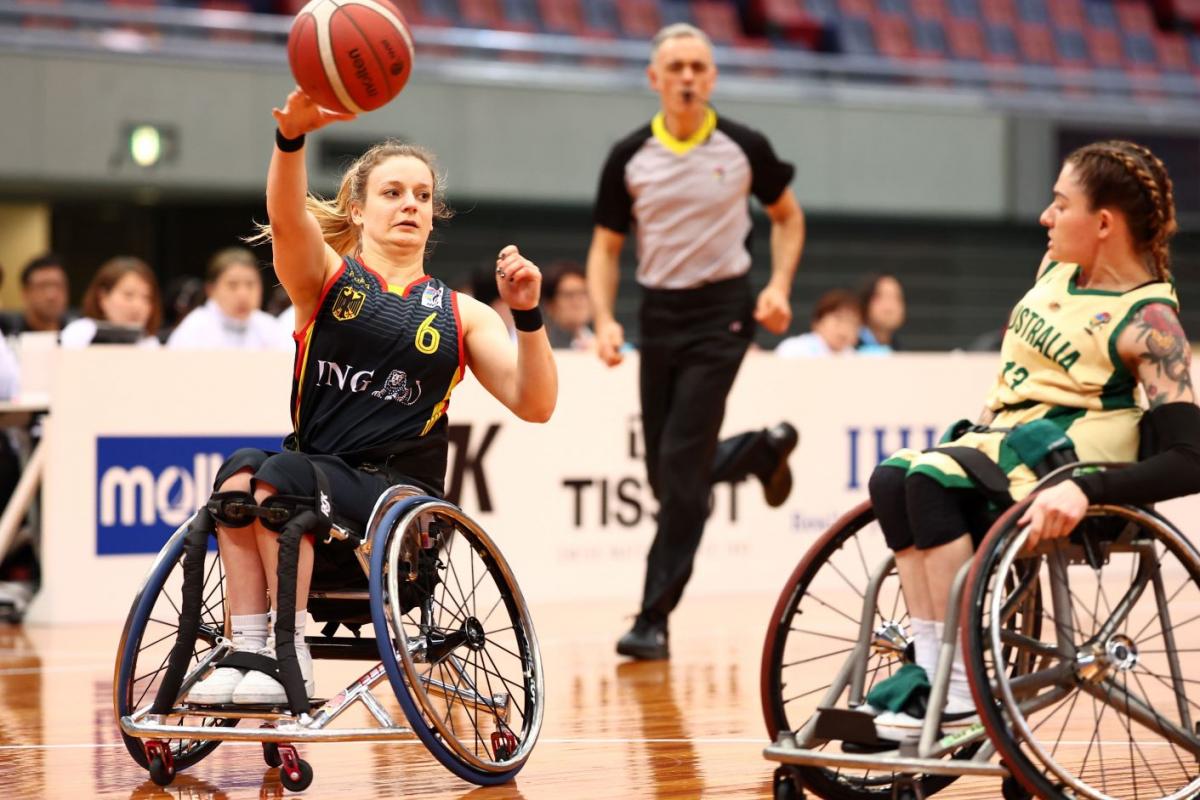
Catharina Weiss was 12 years old when she travelled to London with a local youth group to watch the London 2012 Paralympic Games. In the British capital, she sat in a packed North Greenwich Arena and saw Germany's women win their first wheelchair basketball gold medal in 28 years.
"From that point on, I knew that it would be my dream to compete at the Paralympics one day," Weiss said.
Growing up in Stuttgart, Germany, Weiss had started competing in mono-skiing and Para swimming from the age of nine, holding several national swimming records. In 2012 she had picked up wheelchair basketball and two years later she decided there was not enough time for all three sports.
"At the end of the day I had the most fun playing wheelchair basketball. I just loved it more to compete in a team than competing in an individual sport," Weiss said. "I just love playing and watching wheelchair basketball. It is definitely the sport I am the most passionate about, it is a part of my everyday life and I would not want to miss out on that."
A Paralympic dream
In 2017, five years after coming in contact with the sport, she got her first call-up to the senior national team. Shortly after that, she won a silver at the 2017 International wheelchair basketball federation (IWBF) women's European championship in Tenerife, Spain.
In 2018, they clinched a bronze medal at the world championships on home soil in Hamburg, Germany, and landed another European championship medal as they finished third in the competition in Rotterdam, Netherlands, in 2019, as Weiss kept improving her game.
"I definitely had a talent for the sport and at the same time the right mindset," she said.
"I always want to improve, so I am trying hard to work on myself and to get better. I also had some great coaches along the way that trusted me and helped my development."
In 2021 her Paralympic dream came true as she was selected in the squad for Tokyo 2020 – a highlight of her career so far.
"It was a big moment for me to play in the Paralympics, living in the Paralympic village and just being in a place with athletes all over the world," she said.
Germany however had to settle for a fourth place after losing the bronze medal match 51-64 to USA, starting something of a trend. After Tokyo, Weiss and her teammates suffered three further consecutive bronze medal match defeats, at the European championships in 2021 and 2023 as well as at the 2022 world championships.
"It is definitely in my head that we want to change that and not lose the semifinal and then the bronze medal, again and again," Weiss said.
Training for Paris 2024
Having qualified for the Paris 2024 Paralympic Games in a repechage tournament in Osaka, Japan, in April, Weiss and her teammates have started their quest to bring Germany back to the Paralympic podium.
"I was really happy when we finally qualified, it felt like a big relief," she said. "I am looking forward to a full summer to prepare for Paris and then to start playing in the Paralympics in our neighbouring country. I am sure it will be an incredible experience."
A regular day consists of two training sessions; one in the morning and one in the evening. Weiss, who also studies a bachelor degree in business law, usually wakes up at 7:30 in the morning and often has her first training session right after breakfast.
"In the morning, I usually have a lifting session or a session to work on my individual skills, like ball handling or shooting," she said.
"I try hard to improve as a player, I didn't play a lot in Tokyo and I just had the goal to get better and at the same time develop into a more key player for the team."
After the first training session of the day, Weiss shifts her focus to the other parts of her life.
"Then I am trying to get some studying done, have something to eat, or just the regular things like grocery shopping or household things," she said.
"Combining studying and sport is not always easy and it all comes down to good time management, but I do enjoy a lot not to only have the sport in my life, so I can get my mind away from the sport and focus on something completely different."
The evening sessions are usually with her teammates in German club side RSV Lahn-Dill. Throughout the season she usually trains four to five times with the team, two times individually and two to three weights sessions per week.
On top of that, she has one weekly physiotherapy session. In the summer she increases the number of individual sessions between the intense national team camps.
"Individually, I definitely want to improve my game more with different things like, for example, becoming stronger in finishing," Weiss said.
"As a team, we know we need to improve more individually in different areas, for example, our fitness level. If we improve more as individuals, we will automatically become better as a team. When we bring all our individual strengths together to be good as a team, we have good chances to make it back to the podium."
After the evening session she usually grabs a small bite and relaxes at home before it is bedtime. "In my spare time I like to do some things with my friends and I enjoy cooking, but at the same I also enjoy having time to myself and just do nothing," Weiss said.
Building confidence
Weiss was diagnosed with cancer when she was only two months old and survived. She has been using a wheelchair since she was a young child. The discovery of wheelchair basketball played a big role for her confidence, on and off the court.
"When you grow up you go through a time of accepting yourself and accepting to have a disability. The sport had such an important influence on me. I was in a group of people with different disabilities and it wasn't something unusual to have a disability," Weiss said.
"It helped me a lot to not be that one person with a disability. In that group I could just be myself. Wheelchair basketball had a great impact on my life and on finding myself, especially being confident with myself and my disability."
Twelve years after watching Germany win Paralympic gold, her full focus is to bring another Games medal to her country.
"The biggest goal would always be to compete for a medal at the Paralympics. As long as we play our best team basketball, everything is possible."
Learn more about 🏀
— Paralympic Games (@Paralympics) July 1, 2024
Check out all you need to know about #WheelchairBasketball, a fast sport that requires teamwork and eye-hand coordination.#Paralympics @_IWBF https://t.co/Eq8RDDB2eE
Discover more about wheelchair basketball and the 22 sports in the Paris 2024 Paralympic sports programme





